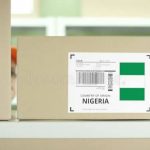The Nigerian Postal Service (NIPOST) has announced that Nigerians sending parcels to the United States will now be required to prepay a customs duty of $80 (or its naira equivalent) before dispatch.
In a public notice released on Friday, August 29, NIPOST clarified that the levy is not unique to Nigeria but applies to all countries following a U.S. directive issued under the International Emergency Economic Powers Act (IEEPA).
According to the agency, the new requirement stems from a U.S. executive order suspending the de minimis exemption for duty-free postal shipments. This exemption previously allowed goods valued below $800 to enter the U.S. without duty charges. Under the new policy, however, all postal operators and their designated administrations worldwide must collect the $80 fee upfront before parcels are dispatched.
The new customs duty applies only to parcels and not to letters or documents. All shipments will also be subject to stricter customs inspections upon arrival in the U.S., with airlines and cargo carriers already adopting tighter handling procedures.
NIPOST further cautioned that these measures could extend transit and processing times, potentially leading to delivery delays for businesses and individuals relying on U.S.-bound shipping.
To minimize disruptions, the agency revealed it is in active discussions with the Universal Postal Union (UPU), U.S. Customs and Border Protection (CBP), and airline partners. It also reassured customers of its commitment to providing reliable, secure, and efficient postal and courier services despite the global regulatory changes.
Analysts warn that the U.S. decision to suspend the de minimis rule could have significant ripple effects on cross-border e-commerce, small businesses, and individuals who depend on international shipping for personal and commercial purposes.
Earlier in April, DHL temporarily suspended its business-to-consumer (B2C) shipments to private individuals in the U.S., citing new CBP regulations that lowered the threshold for formal customs processing. The logistics giant explained that the change led to an increased workload for customs clearance, straining resources and causing multi-day delays for high-value shipments.
For African entrepreneurs, particularly MSMEs engaged in e-commerce and export trade, the new $80 flat duty raises costs for sending small packages, including online purchases. Many small businesses may need to adjust pricing, logistics strategies, or explore alternative shipping options to remain competitive in cross-border trade.
The U.S. move is part of broader trade and security measures that impact all countries sending parcels through postal services, with Nigeria and its MSME ecosystem directly feeling the impact.










